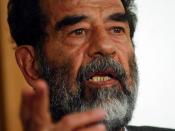With the headlines and the TV chatterers directing virtually 100% of their time (and ours) to endless discussions of the probable war against Iraq and the faithlessness of some of the U.S.' allies, there seems to be no time for consideration of President Bush's comprehensive energy plan. As all energy problems have international--indeed, global--aspects, the importance of getting this plan enacted increases daily.
We are all familiar with the OPEC cartel, which controls oil production in the Middle East, Venezuela, Indonesia and some African countries. In the past OPEC was able to manipulate and, for a time, control oil prices worldwide. Saudi Arabia, of course, remains the world's largest oil exporter and has 25% of the world's known oil reserves, a fact U.S. foreign policy must always consider. But OPEC now has a rival. Russia has become the second-largest oil producer in the world. Its production levels will continue to rise as more of its oil industry becomes privatized and, thus, more efficient and entrepreneurial.
It is clearly not in America's best interests to have Russia cooperate with OPEC. It was therefore gratifying to note that Russia increased its oil exports in 2001, while OPEC cut its production three times that year in an effort to raise world prices. Last year a Harvard study concluded: "If Russia continues to implement a pro-market approach, it can increase its share of the market and its influence on market trends."
But why should the U.S. be dependent on the vagaries of foreign oil production? With the crisis in Iraq and the increase in political tensions throughout the Middle East, this question has become critical. The main goal of President Bush's comprehensive energy plan is to reduce or eliminate our reliance on fossil fuels (coal and oil), which exist in vast quantities...



Rating
This essay may be adequate for high school in grade 10 and under. Good as a basis to another paper.
8 out of 9 people found this comment useful.